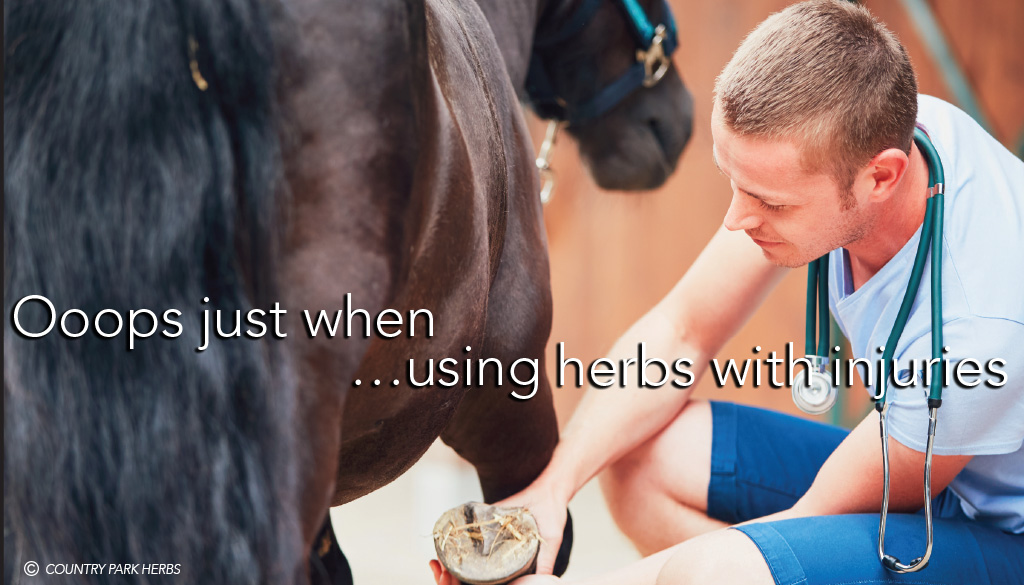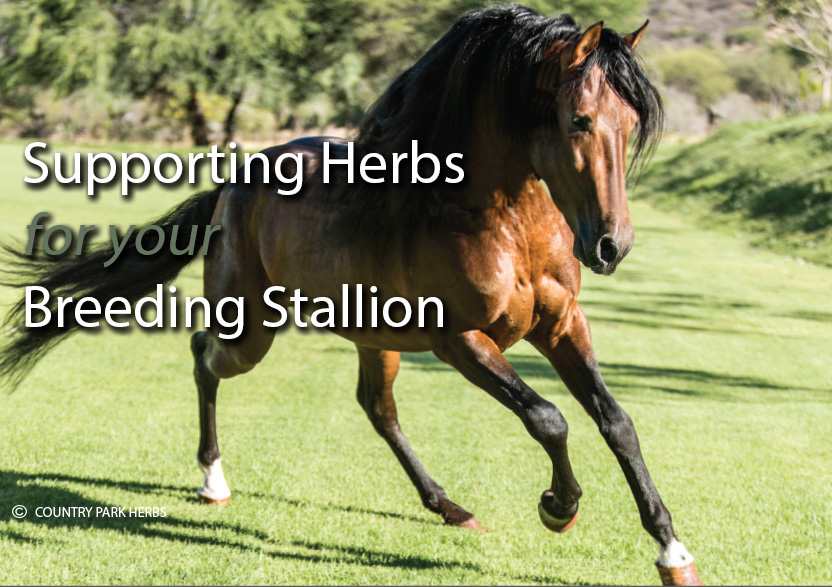Patersons Curse, at Country Park Animal Herbs we have had so many enquiries as to what may help with this problem currently affecting so many horse owners. We have referred our clients for a consultation with Catherine Bird, and each horse and situation has been given herbs to support their horse. We do not make claims of a cure or complete protection, however there are herbs that can be used to assist your horse. Catherine kindly provided the following information, however please consult your veterinarian or animal herbalist for each horse to get the best combination of care available.
St Mary’s Thistle (Silybum marianum, synonym Carduus marianus referred to as Milk Thistle in northern hemisphere texts) Traditionally this herb has been used to help protect and regenerate the liver. Silymarin is the active constituent and seems to cause an alteration of the outer hepatocyte cell membrane to inhibit toxin penetration. St Mary’s Thistle is easily given to our horses in the powdered seed. The dose varies as to the role, be it protection or to help with recovery, and if you are using it for protection, it is wise to have a period of supporting the horse’s body with other liver herbs such as dandelion root and burdock root intermittedly as St Mary’s Thistle is considered a safe herb but some researchers have concerns of its long term use.
Tumeric (Curcuma longa, synonyms Curcuma domestica, Curcuma aromatica.) is a herb is used traditionally in Ayurvedic practices and the active constituent Curcumin and has been shown to have liver-protectant properties. Turmeric has a warm, bitter taste and a yellow colour, and it is frequently used to flavour or colour curry powders and again with this herb I prefer to use it powdered so as not to irritate the stomach if ulcer are present. If you know your horse has ulcers, this herb should not be given on its own.
Other herbs I consider using depending on the clinical signs being expressed are:
Licorice (Glycyrrhiza glabra) is a herb I recommend cautiously, and tend to use this selectively as it has to be balanced carefully with the other herbs in a formulation.
Korean Ginseng (Panax ginseng) is used as an “adaptogen” for increasing resistance to environmental stress and as a general tonic for improving well-being. It is also used for stimulating immune function and has been shown to help with the speed toxins are cleared from the blood
Astralgalus (Astragalus membranaceus) astragalus seems to improve liver function and is used to help build the body’s resistance.
Schisandra (Schisandra chinensis) as Schisandra improves liver function by increasing hepatic activity and it might also have a hepatoprotective effect by inhibiting lipid peroxidation, increasing liver glycogen production, and promoting hepatocyte growth.
Ginger (Zingiber officinale) as a supportive herb to help the body assimilate the benefits of the above herbs.
Each horse is different. When deciding what herbs to select you need to consider the age of the horse, the current feed regimen, what exposure the horse has had to Paterson’s Curse, and the lifestyle of the horse, and his other health issues. Some of the above herbs are contraindicated in pregnancy and if other health issues are present so please be aware of as much of your horse’s health history when you seek out the use of herbs. The above herbs are just a sampling of what is available, and if you take a sensible approach a combination of three or four carefully chosen herbs should be of assistance to you.
Note: please look at reducing the level of protein in your horse’s diet if he does consume Patterson’s curse and be mindful of buying feed that may have been fertilised with organophosphates as some feeds are very high in nitrates at the moment which could add to the stress on your horse’s body.
©2003 Catherine Bird





